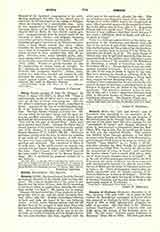

Simeon (Hebrew: SM`VN), the second son of Jacob by Lia and patronymic ancestor of the Jewish tribe bearing that name. The original signification of the name is unknown, but the writer of Gen., xxix, 33-35, according to his wont, offers an explanation, deriving the word from shama, “to hear”. He quotes Lia as saying: “Because the Lord heard that I was despised, he hath given this also to me; and she called his name Simeon” (Gen., xxix, 33). Similar etymologies referring to Levi and Juda are found in the two following verses. In Gen., xxxiv, Simeon appears with his full brother Levi as the avenger of their sister Dina who had been humiliated by Hemor a prince of the Sichemites. By a strange subterfuge all the men of the latter tribe are rendered helpless and are slaughtered by the two irate brothers who then, together with the other sons of the patriarch, plunder the city. This act of violence was blamed by Jacob (Gen., xxxiv, 30), though for a rather selfish reason; his disapproval on more ethical grounds appears in the prophetical blessing of his twelve sons in Gen., xlix, 5-7. Regarding Simeon and Levi Jacob says: “Cursed be their fury, because it was stubborn; and their wrath because it was cruel: I will divide them in Jacob, and will scatter them in Israel.”
There is a striking contrast between this earlier appreciation of the treacherous and bloody deed and that of the writers of post-Exilic Judaism, who have only words of praise for the action of the two brothers, and even consider them as incited to it by Divine inspiration (see Judith, ix, 2, 3). The same change of ethical sense may be gathered more fully from the uncanonical Book of the Jubilees (xxx) and from a poem in commemoration of the massacre of the Sichemites by Theodotus, a Jewish or Samaritan writer, who lived about 200 B.C. Simeon figures in only one other incident recorded in Genesis. It is in connection with the visit of the sons of Jacob to Egypt to buy corn. Here he is detained by Joseph as a hostage while the others return to Chanaan promising to bring back their younger brother Benjamin (Gen., xlii, 25). According to some commentators he was selected for this purpose because he had been a principal factor in the betrayal of Joseph into the hands of the Madianite merchants. The narrative, however, makes no mention of this, and it is but a conjectural inference from what is otherwise known of Simeon’s violent and treacherous character. (See Tribe of Simeon.)
JAMES F. DRISCOLL

